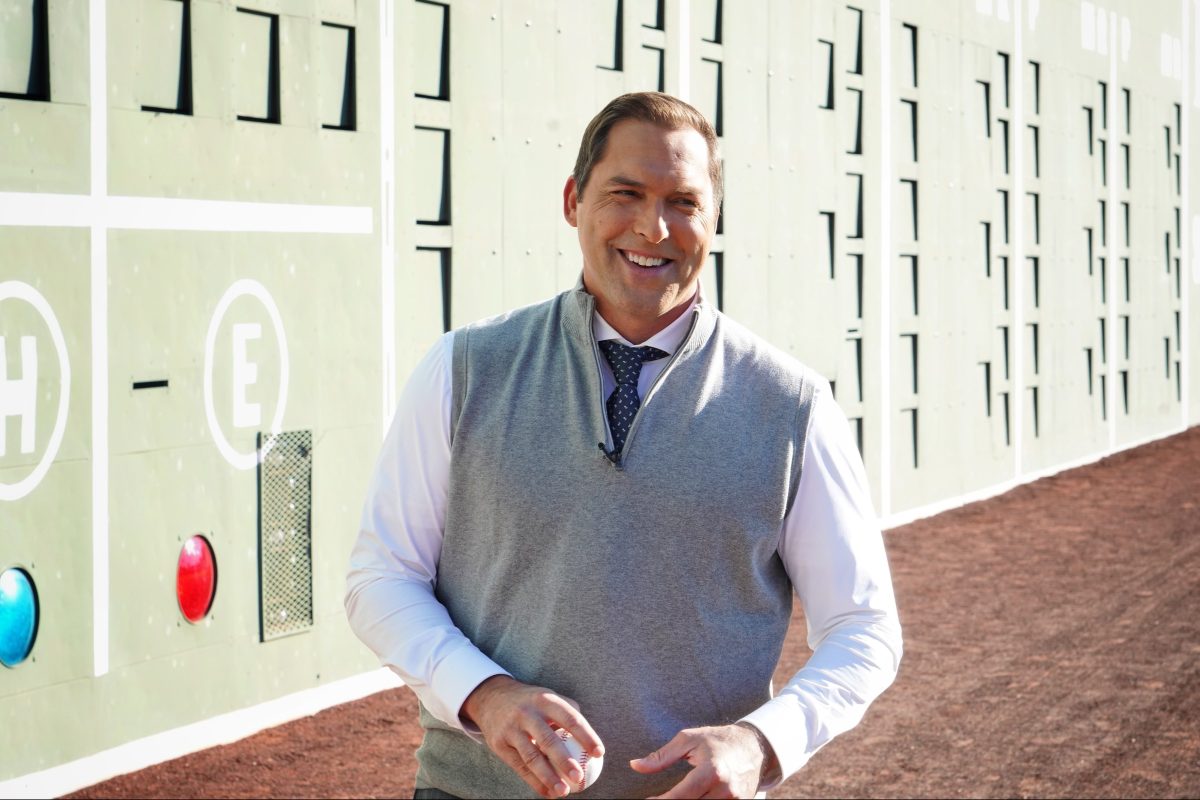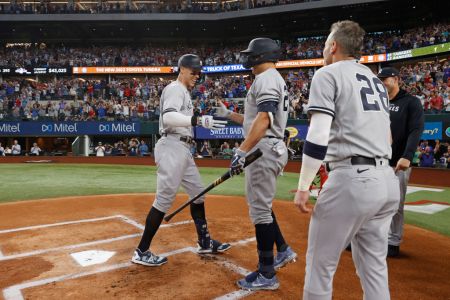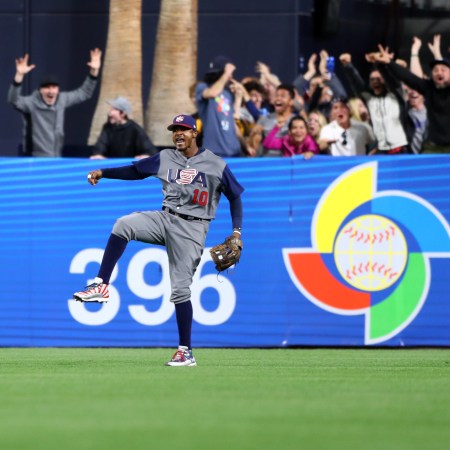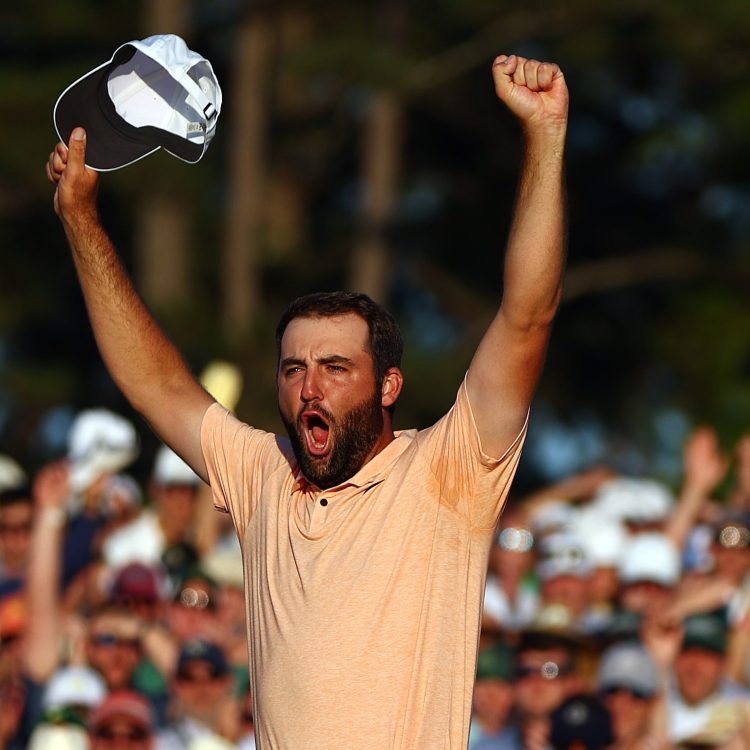Mark DeRosa knows a lot about at least two things: baseball and having pride in one’s country. Primarily a utility player for 16 seasons in Major League Baseball, he was a member of the Atlanta Braves in 2001 when they visited the Mets for New York City’s first pro sports contest after the 9/11 terrorist attack. He got into the game as a pinch runner, and from the bench watched Mets All-Star catcher Mike Piazza launch a game-winning home run to center field that sent the Shea Stadium fans into a frenzy.
I know a lot about that. I was there, and I recently had the chance to ask DeRosa about his memory of that epic game.
“Wasn’t that unbelievable?” he said. “It was the only professional game I ever played in where I was like, ‘We need to lose this game.’”
He put country first that day, if only on an emotional level. He’s about to ask a roster of MLB’s best players who hail from the United States to do the same thing, as manager of Team USA in the World Baseball Classic (WBC). The squad’s defense of its 2017 championship begins when they gather for the first time today (March 7). Tournament games begin March 10.
When I was finished reminiscing about the best live sports memory of my life, I asked DeRosa about his time playing for Team USA in the 2009 WBC, what he hopes to achieve as its manager this year and, when he returns to MLB Network, where he serves as an analyst, what he’s most looking forward to in the upcoming MLB season.
This interview has been edited for context.
The 10 Numbers That Help Explain the 2022 Major League Baseball Season
Some big changes from last yearInsideHook: How does it feel to be manager of Team USA?
Mark DeRosa: I’m humbled and honored by it. I’ve had the last two to three months to digest it and the thing with me is I try to make myself as comfortable as possible by reaching out to all the players on the team, getting to know them on a personal level or at least extending an opportunity to do that before we meet in person on March 7. I’ve spoken with every pitching coach of every pitcher we have on the team; I’ve spoken to them about how they want to be used, how can we return them back to you healthy, what makes this guy tick. So I’ve tried to attack this, throw myself into this a hundred percent and make everyone comfortable with what we’re doing.
How does a gig like this come about for you?
I got a call from Team USA’s general manager Tony Reagins asking me if I’d like to interview for a chance to be the manager and I thought, “What an opportunity.” I’d tip-toed into a few managerial interviews in the past. Then, talking to guys who I played against — Alex Cora, Aaron Boone, AJ Hinch — all to a man they said the same thing: “If you’re going in there to interview for something you truly want, then you better let them know you’re not leaving until you get it, otherwise they’re gonna move on to the next guy.” So driving into the interview, I thought this was kind of perfect for me. I’ve had the time to thrust myself into this and see it through. I’ve gotten to know my coaching staff. They’ve been outstanding throughout this process, and we’ve tried to build a three-week “experience” for the players on the team.
From a talent perspective, how confident are you in this team?
I expect to win. That’s the expectations of Mike Trout, Nolan Arenado — they wouldn’t be taking the time out of their preparation for the upcoming season if they didn’t want to win this thing. I have a ton of respect for the other countries. I know it will not be easy, but my expectation when we kick off on the 11th is to snatch souls. [Laughs]
But historically in the World Baseball Classic, the most talented team, at least on paper, hasn’t always won. Why has that been the case?
It comes down to executing pitches and timely hitting and playing good defense and putting guys into position to be successful. All that stuff plays into it. But there has to be a care factor of the guy next to you, and how do you build that super quick? Jim Leyland was my first phone call when I got the job of manager, because he had managed the 2017 team and led them to the championship. I felt like going through the box scores of those WBCs, he treated it completely differently. He treated it as: “Team.” The front of the jersey is more important than the name on the back, the hot hand is gonna play and we’re gonna try and win this thing. For me, I’ll do everything in my power to return these guys to their parent club healthy, but I think it’s about creating chemistry and getting these guys to be a team quicker than they would on their own.
You played in the WBC for Team USA. What changes to your offseason training regimen did you make as a player to get ready for that tournament?
For a position player it’s super easy; you just ramp it up a little quicker. I always let my body heal when the season was over, maybe started working out about a month after the last out and then didn’t pick up a bat until after the new year and kind of grinded it out going into the spring. For today’s players, it’s got to be a heckuva lot different. We honestly didn’t know what this was to become in 2009 when I played in the WBC. It was the second time it was played and I think we went in — “unprepared” is not fair, but just not aware of how you would need to get ready to pull something like this off. Most of the guys I have now started way ahead of schedule, and I know from a pitching perspective they’ve had to. We might even have to temper them back in pool play.
From a fan’s perspective — and perhaps a business perspective as well — how can the WBC get more visibility? What should people get most excited about?
Just watch it on TV. There’s such a passion for representing your country. That’s the biggest thing I’ve seen from 2009 to now. As a minor leaguer, I went over and played in Venezuela. It broadened my horizons as to how much they cared about representing their country, why they were so passionate about the game and how they play it. It kind of woke me up to that. Their love for the WBC — the Japanese team, too, how important it was for them to represent their country and put on a show in the early going — has created this tidal wave of almost forcing the U.S. to kind of say, “Hey, if you don’t want to get left behind in this thing, you’ve gotta get after it.” When we take on Mexico on the 12th, this is gonna be an event. It’s like the World Cup. I’m not a huge soccer guy, but you couldn’t help but flip on the World Cup. I don’t even know the rules, but I thought it was really cool.
As an analyst on MLB Network, what are you most excited about going into the 2023 season?
A lot of it revolves around the rules changes. As a player, I can honestly say, for lack of a better way of putting it, I never concerned myself with being an entertainer. I looked at it like I was fighting for my life, every at-bat. “How do I add value to this team? If it takes three hours and 30 minutes, so be it,” I did not care. But it is an entertainment product, and so I’m looking most forward to seeing the lack of a shift get some balls back in play and change hitting. Not every player should be thinking they’re a 30-home-run hitter. They’re not. There should be a flow to a lineup, there should be guys setting up the power guys, there should be guys running bases, guys playing a role to make the team better — not nine guys trying to go deep because there’s no hits on the ground. I understood why they were doing it, but I think it will just be a better product offensively, athletically. There’s going to be some hiccups early. We’ve seen that in the spring. The 15-second pitch clock would have been tough for me because I wasn’t a guy who was sitting fastball every pitch. I was kind of a thinking man’s hitter. “Alright, it’s 2-1. Who’s on deck? The wind’s blowing in.” I was processing to eliminate certain pitches. So I’m interested to see what players do under these circumstances, but overall I think the pace of the game and more base hits will be better for the MLB product.
Maybe for hitters it’s just going to have to come down to what some hitting coaches teach anyway: See the ball, hit the ball, right?
It’s funny you say that; I remember when I signed with the Cubs in 2007. I talked to the first baseman Derek Lee like a day after and he said, “You’re gonna realize how little you have to hit to be successful.” Because the batting cage was under the right field stands at Wrigley Field and locked and you had no access to it during the games. You wake up in mid-June and you think, “Half of what I was doing was eyewash to make it feel like I gave it all that I had.” But you really don’t need all that. I’m interested to see better defense, too, more guys diving in the hole, more stolen bases, more flow to the game.
We’re seeing more franchises separate themselves from the rest of the pack in terms of payroll, kind of creating the MLB-equivalent of NBA Super Teams. Is this good for baseball?
I feel like what Steve Cohen’s doing with the Mets is awesome, what Peter Seidler’s doing with the Padres is awesome. With that being said: Do not think you can buy a championship. You think back to those Yankees teams in the 1990s and early 2000s, it wasn’t just monsters in the lineup. You can’t win that way. There has to be 26 guys that truly know their role, are super talented and really care about the chemistry of the team. The Phillies of last year are a perfect example. You could tell they had a group of guys that liked being around each other. All of a sudden they get a new manager, a new voice in the room, and I don’t know if it unlocked the clubhouse or what, but it was like a perfect storm. Houston’s the same way. All their great players are just great all-around hitters. They all put their little piece into the mix.
I love to see these owners go after it. Nothing frustrates me more than seeing some of the teams that sit on their hands time and time again. But I don’t necessarily think that just because you go out and spend all that money you can win. The Padres will be interesting because I don’t think you can ask seven shortstops to play all over the diamond. I could be wrong, though! And there is something beautiful about the Padres playing in that sandbox. It’s not just the Yankees, Dodgers and Mets. We’re seeing the Padres just push the throttle down, and we’ll see how it all blends together. They’ll have every opportunity to get it done. I think it’s good for baseball when an owner treats his team like he’s a fan and wants to put the best product out on the field.
Following the WBC, watch Mark DeRosa co-host MLB Network’s “MLB Central,” weekdays at 9 a.m. ET.
Whether you’re looking to get into shape, or just get out of a funk, The Charge has got you covered. Sign up for our new wellness newsletter today.
























